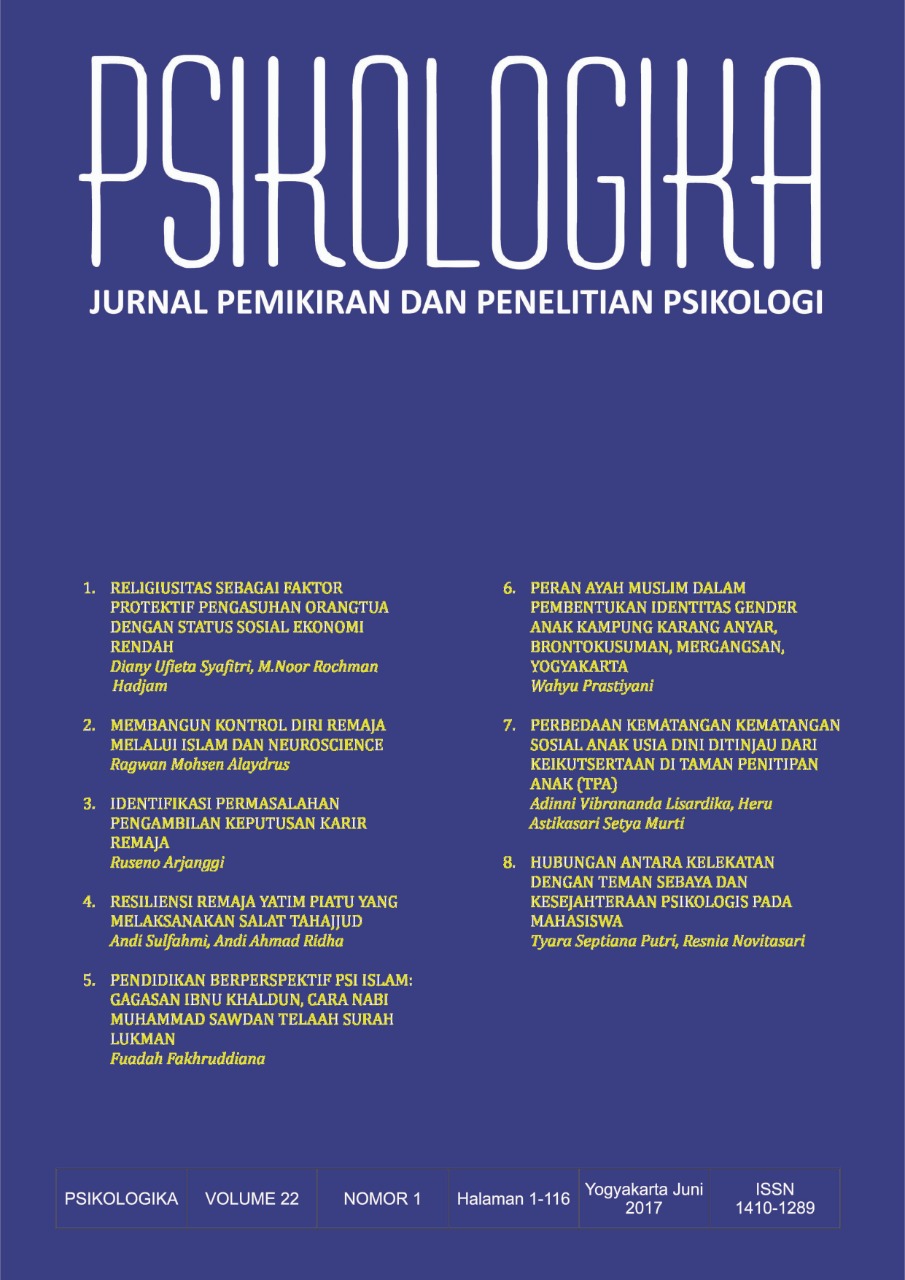Main Article Content
Abstract
This study aims to (1) know understanding of Muslim father against his role as a father, (2) identify Muslim father's role in the gender identity formation of children aged 6-8 years, and (3) determine the factors that influence Muslim father's role against gender identity formation of children aged 6-8 years. In this study, researchers used a qualitative descriptive research with an ethnographic approach. Collecting data using observation, interviews, and documentation. The subjects consisted of five fathers (intact family) aged 30-40 years who had children aged 6-8 years. The results of this study are (1) understanding of Muslim father against his role as a father are as economic provider, protector, educator, dan nurtured mother; (2) Muslim father's rolein the gender identity formation of children aged 6-8 years include friends sharing, role model, resource, and disciplinary; and (3) the factors that influence Muslim father' srole against gender identity formation of children aged 6-8 years are (a) educational
background of father, (b) background of ethnic/culture, (c) length of working time father, (d) awareness of the responsibilities of parenthood, (e) cooperation and mutual agreement, (f) knowledge of parenting fathers, (g) the pride of the father on the child' ssuccess, (h) lack of closeness between father and son, (i) the mental health of the father.
Keywords: children, gender identity formation, muslim father's role
background of father, (b) background of ethnic/culture, (c) length of working time father, (d) awareness of the responsibilities of parenthood, (e) cooperation and mutual agreement, (f) knowledge of parenting fathers, (g) the pride of the father on the child' ssuccess, (h) lack of closeness between father and son, (i) the mental health of the father.
Keywords: children, gender identity formation, muslim father's role




